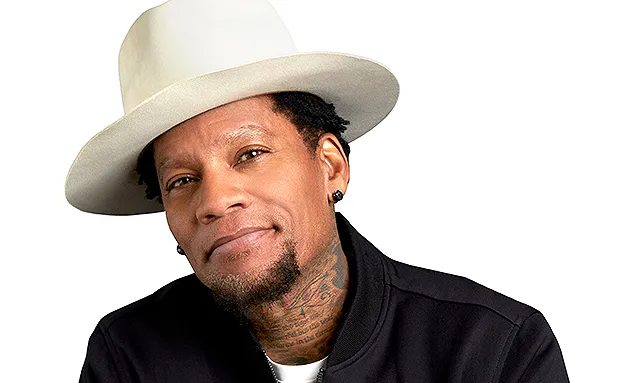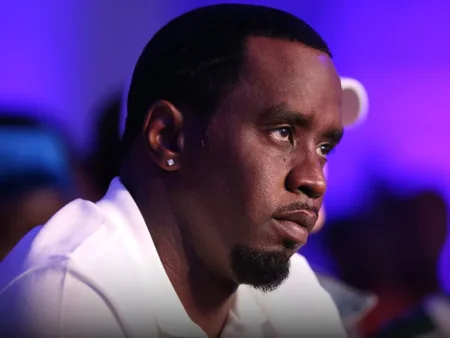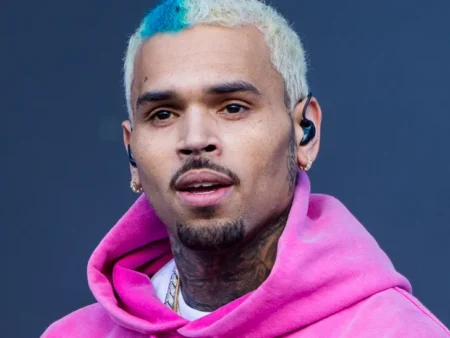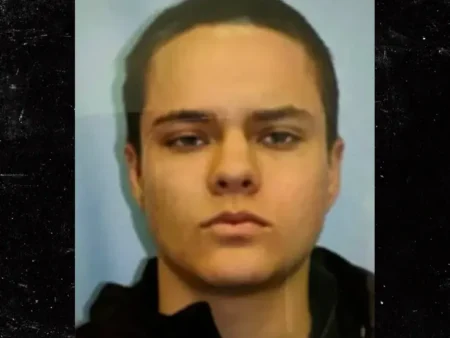In a heated exchange on TMZ Live this Tuesday, comedian and activist D.L. Hughley didn’t hold back after being asked about Trevor Noah’s recent comments on integration. Hughley went on the offensive, calling Noah’s question about whether integration was the right move for America “maybe the stupidest thing I’ve ever heard.”
The remark came after Noah, during an episode of his podcast, questioned if integration truly benefited Black Americans. D.L. Hughley, never one to shy away from controversial subjects, responded forcefully, addressing the complex and ongoing consequences of racial integration and its aftermath in America.
The Reality of Integration: Black People Still at a Disadvantage
Hughley’s response touched on some harsh realities for Black Americans, explaining that the integration of schools, neighborhoods, and other public institutions hasn’t resulted in the promised equality for Black people. He emphasized that although there have been some improvements, the core systemic issues that disadvantage Black communities remain firmly entrenched.
D.L. pointed out the phenomena of “white flight,” where white families moved out of integrated schools and neighborhoods, often taking resources with them, leaving Black institutions worse off than before. “They integrated, but when they did, the white kids left and took the resources with them,” Hughley said. “So, it just canceled out any potential benefits.” This comment brings to light the unintended consequences of the integration process that often left Black schools underfunded and Black communities still in disadvantage.
Racism Has Evolved, But Systemic Challenges Persist
While D.L. acknowledged that progress has been made in some areas, such as advancements in civil rights and less overt racism, he quickly made it clear that many systemic issues remain. From banking and housing to policing and employment, Hughley pointed out that white supremacy still pervades these institutions, albeit in more covert ways.
“The systems are still filled with white supremacy,” he noted. “The idea of equality is still a long way off.” While society has made strides, Hughley pointed out that significant barriers remain for Black Americans to achieve true equality, especially in critical areas like wealth-building, education, and criminal justice.
This view echoes the sentiment that while individual acts of racism may be less visible, the structural inequalities that exist in various systems continue to impact the Black community. And while major milestones in Black history were made relatively recently, they didn’t necessarily result in lasting changes that addressed the root causes of inequality.
Understanding the Complicated Legacy of Integration
Hughley’s critique was sharp, focusing on the historical context of integration, which he believes was necessary due to the severe underfunding of Black schools prior to the policy change. However, his point was clear: the system failed to provide equitable resources for Black communities even after the integration of schools. The promise of integration, Hughley argues, was never fully realized because of the ways in which white families and institutions actively withdrew from these efforts.
The idea that integration was a panacea for racial inequality was, in Hughley’s view, overly simplistic. He suggests that Black communities were left to grapple with the fallout of a policy that, while well-intentioned, did not address the deeper systemic issues that prevented true equality from taking root.
A Fatigue with South African Perspectives on Race
As if the integration debate weren’t heated enough, D.L. also expressed his frustration over hearing perspectives on race from South Africans, specifically pointing to Trevor Noah and Elon Musk. Both public figures, though from different backgrounds, have become involved in race-related discussions in America, with their foreign perspectives sometimes drawing ire from those who believe they may not fully understand the intricacies of American racial dynamics.
Referring to Noah and Musk, Hughley voiced his exasperation, particularly given the different racial context of South Africa compared to the United States. “I’m tired of hearing about race from South Africans this year,” he said, alluding to the broader conversations around race that have involved figures like Noah and Musk in 2023 and 2024.
His comment reflects a growing sentiment that outsiders, even with a shared history of racial struggle, may not be fully equipped to comment on the specific nuances of race relations in America.
The Historical Context of American School Segregation and Integration
To fully understand D.L. Hughley’s critique, it’s essential to consider the history of American school segregation and integration. For much of the 20th century, Black students were denied access to quality education, often attending overcrowded, underfunded schools while white students received better-funded and more modern schooling. The landmark Supreme Court decision in Brown v. Board of Education in 1954, which declared that racial segregation in public schools was unconstitutional, was meant to correct this injustice.
However, the reality of integration was much more complicated than simply opening up white schools to Black students. The period following the ruling saw massive resistance in many parts of the country, including the rise of “white flight” to suburban areas, where predominantly white schools continued to thrive while Black schools were left in decline. Even as policies changed, the infrastructure for true integration was never fully established, and the wealth gap between Black and white Americans continued to widen.
D.L. Hughley’s Call for Acknowledgment of Progress and Struggles
Despite his frustrations, Hughley is not without hope. He acknowledges that there have been improvements in various aspects of American life, especially when it comes to individual opportunities for Black Americans. However, his larger point is clear: the systems that were designed to maintain the status quo of white supremacy continue to shape the lived experiences of Black people. While some progress has been made, there is still a long way to go.
D.L. Hughley’s comments serve as a powerful reminder that integration was never a simple solution, nor was it ever the definitive answer to racial inequality in America. The complexities of race, history, and power dynamics in this country demand deeper conversations, one that goes beyond policies like integration and tackles the systemic issues that persist.
Conclusion: A Call for Reflection and Action
D.L. Hughley’s remarks about integration and the ongoing struggles for racial equality in America are a potent reminder that while policies and laws have changed, the systems of power and privilege that perpetuate inequality are still in place. His critique of both Trevor Noah’s comments and the broader issue of race relations shows the need for continued dialogue and action on these critical issues. As the debate over integration continues to unfold, it’s clear that addressing the roots of systemic racism requires more than just surface-level solutions — it demands a thorough examination and dismantling of the structures that have kept racial inequality alive for generations.








